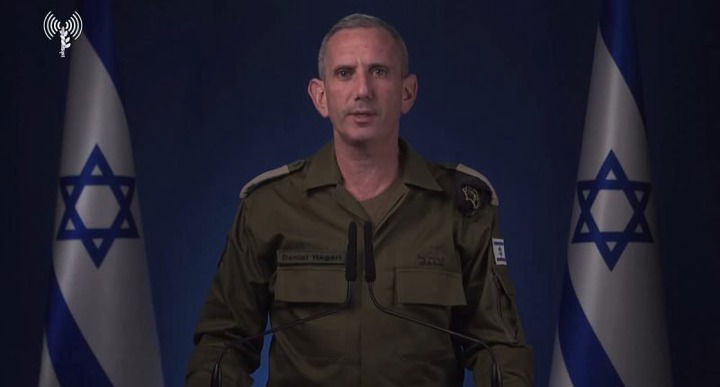Israel attacks Iran: Explosions heard in Tehran from IDF airstrike

Explosions have been heard across Tehran as IDF forces announce they have launched retaliatory strikes in the region.The Israeli military has stated that it is carrying out precise attacks on military objectives in Iran in reaction to what it termed as the ongoing assaults from the Iranian regime against Israel.There have been accounts of a minimum of five explosions that have shaken the city of Tehran, along with loud detonations heard in the countryside of Damascus and the central area.The Middle East has been tense in anticipation of Israeli reprisal for Iran’s assault on October 1, during which approximately 200 ballistic missiles were launched at Israel, marking Iran’s second direct strike on Israel in six months. An Israeli military statement said that Israel ‘has the right and the duty to respond’, although it did not elaborate on targets. Adding: ‘The regime in Iran and its proxies in the region have been relentlessly attacking Israel since Oct. 7 – on seven fronts – including direct attacks from Iranian soil.’Witnesses in Tehran confirmed hearing loud explosions said: ‘It was so loud and the sky became red,’ said an Iranian resident in Tehran, who asked not to be named.
The Israeli military said it had ‘fully mobilised’ its offensive and defensive capabilities as it carried out strikes on military targets in Iran on Saturday.‘Our defensive and offensive capabilities are fully mobilised,’ the military said in a statement. Military spokesman Rear Admiral Daniel Hagari, in a separate statement, called on the people to be ‘alert and vigilant’.Iranian authorities have warned Israel against launching an attack, saying any strike on Iran would be met with a stronger retaliation.According to Fox News, the White House was notified shortly before Israel conducted the strikes.Iranian officials, under condition of anonymity, told the New York Times that Iranian supreme leader, Ayatollah Ali Khamenei, has told his armed forces to prepare several responses to be implemented depending on the severity of Israel’s strike.
Widespread damage and a high number of casualties could provoke a sharp reaction from Tehran, the officials said, adding there may be no response if the attack is limited to military compounds.Focus has fallen on the various oil refineries and nuclear sites of economic and strategic value to Iran in the wake of its blistering assault on Israel earlier this month. Israel was said to assured allies in the US it would steer clear of valuable sites.
Officials said a major attack could trigger a response with as many as 1,000 ballistic missiles – fivefold the number used earlier this month in what was its largest attack on Israel in its history.The Ayatollah has allegedly ordered that such a heavy response should be carried out if Iran hits energy infrastructure or nuclear facilities, or assassinates senior officials, the officials said.The October 1 attacks were themselves in response to an Israeli attack that killed IRGC operations commander Brig-Gen Abbas Nilforoushan and Hezbollah leader Hassan Nasrallah in Lebanon, according to Iran.Iran has maintained that it does not seek escalation, but has sent out persistent warnings to Israel that it will ‘not last long’ as it presses on with operations in Lebanon and Gaza.And as the region appears to be on the brink of war, the Israeli military boasted that the decapitation of Hezbollah was ‘not the end of our toolbox’ and gloated that they can ‘reach’ anyone who threatens them. In a brazen taunt to the countries surrounding them, the Israel Defence Forces (IDF) then shared a diagram of the Hezbollah chain of command, where each leader had been marked up as ‘Eliminated’. On top of this, three days ago Israel killed Hashem Safieddine, the alleged ‘next leader’ of Hezollah in a blitz of his bunker. Safieddine was a powerful cleric within the Hezbollah ranks and was anticipated to succeed Hassan Nasrallah. About 25 other Hezbollah leaders were also reportedly killed during
